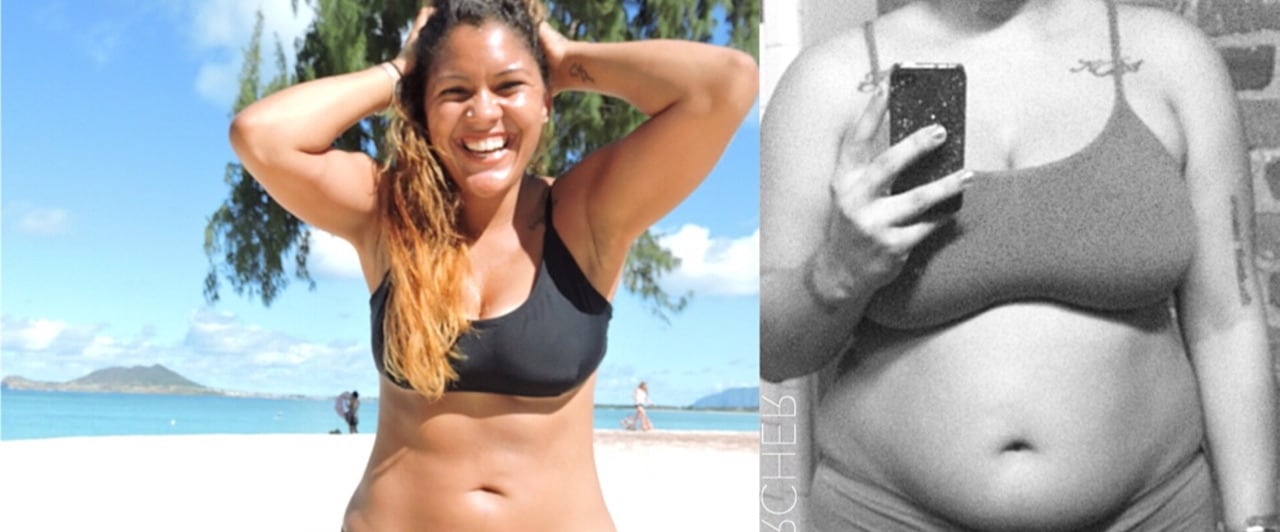When It Comes to Weight Loss: One Plan Does Not Fit All

Exercising and eating right will work as long as the weight-loss regimen is right for you. (Dreamstime)
White Americans are not the international gold standard when it comes to good health. Recent research shows, for example, that some groups of American white women are losing ground when it comes to life expectancy and that Canadians of African descent may be equal to Canadian whites in many measures of health.
That’s why it’s a little disturbing — at the end of 2013 — to see yet another study that measures the ability of African-American women to lose weight (and therefore stay healthy) by comparing us to white women.
A new study, published in the International Journal of Obesity, found that when African American women and white women followed similar diet and exercise regimens for six weeks, the African-American women lost approximately 8 pounds less than the white women.
The study team reported that the 64 black study participants had a lower energy expenditure (calorie-burning) rate and resting metabolic rate than the 91 white participants. The study authors recommended higher levels of calorie restriction for black women in weight-loss programs.
A more useful way to look at the data might be to recognize that diet and weight-loss advice and assessments need to be based on individual needs, rather than arbitrary, race-based comparisons.
In a 2012 study of 1,110 African-American women, conducted at Baylor College of Medicine, every woman lost 10 percent of her body weight or more and kept it off for about a year. Thirty percent of the women lost an average of 23 percent of their body weight (about 50 pounds) and kept it off for more than five years.
Here are the keys to their success:
- Limiting fat intake
- Eating breakfast
- Avoiding fast-food restaurants
- Engaging in moderate to high levels of physical activity
- Using a scale to monitor their weight once a month.
And, those who kept the weight off the longest were more likely to say that religious faith helped them stick with their weight-loss plan.
What’s the take-home message? Research aside, race has nothing to do with weight loss. Exercising and eating right will work as long as the weight-loss regimen is right for you.
Flu Spreading Fast: Lower Your Risk
We’ve barely chilled the champagne to ring in the New Year, but the Centers for Disease Control and Prevention (CDC) have issued an alert that the flu is traveling at a furious pace across the United States. Residents of Pennsylvania, Massachusetts and Tennessee are already battling high rates.
The flu is a serious health threat for everyone, especially young children, the elderly and anyone with a weakened immune system. The CDC warns that you may also have a higher risk of complications if you have diabetes, heart disease or asthma.
To protect yourself:
▪ Get the shot. The vaccine should be free at many national drugstore chains or just call your doctor. The flu is a different virus each year, so you need to repeat the vaccine annually. Even if you’ve already had the flu, get vaccinated. You can catch it again.
▪ Stand back. A 2013 study found that flu particles can travel as far as six feet from an infected person who talks, coughs, sneezes or exhales.
▪ Pack a punch. Alcohol-based hand sanitizers cannot prevent everything, but they can knock out flu and cold viruses that you pick up from touching a contaminated surface. But, washing with good, old-fashioned soap and water for at least 20 seconds is your best bet if you have an opportunity. Either way, keep unwashed hands away from your face.
▪ Wait it out. The flu usually develops two to four days after exposure, but you’re contagious from day one after infection until at least seven days after becoming sick. Kids may be contagious for longer than seven days.
▪ Spray and scrub. The CDC recommends that you disinfect all surfaces if someone in your home has the flu or a cold (especially kids), but this also means exposing yourself to powerful chemicals such as chlorine bleach (it will kill the flu virus) and Lysol© (registered with the Environmental Protection Agency to kill the influenza virus). If you choose bleach, a diluted solution will do the trick (one-quarter cup of bleach in a gallon of water or one tablespoon per quart).
▪ Consider an anti-viral. If you feel the flu coming on, your doctor can prescribe an anti-viral medication that can lessen symptoms and shorten sick time by about two days. The drugs can also prevent serious flu complications, such as pneumonia. But be sure to ask about side effects.
Have a Smoke-Free New Year
 The research results are in, recommitting to your no-smoking goal each week, with the help of the Requit Mondays campaign is an effective way to kick the habit. Millions of people attempt to quit smoking each New Year’s Day, only to feel that they’ve failed if they slip up.
The research results are in, recommitting to your no-smoking goal each week, with the help of the Requit Mondays campaign is an effective way to kick the habit. Millions of people attempt to quit smoking each New Year’s Day, only to feel that they’ve failed if they slip up.
Instead, follow the advice of a 2013 study published in JAMA Internal Medicine. To gain a better understanding of smoking cessation patterns, a team of scientists from San Diego State University, the Santa Fe Institute, the Monday Campaigns and the Johns Hopkins Bloomberg School of Public Health studied Google search logs for searches related to quitting, such as “help quit smoking.”
The study team reported that people all over the world are most likely to contemplate kicking the habit on Monday. “Since it takes an average of seven to 10 quit attempts to succeed,” they wrote, “encouraging people to requit or recommit to their quit attempt once a week can reduce the overall time it takes to quit for good.”
Visit www.Mondaycampaigns.org to learn more about Requit Monday, and download free smoking-cessation advice and weekly quit tips.
To increase your chances of success, learn more about the amazing health benefits of kicking the habit, and:
▪ Seek support from family and friends.
▪ Quit with a buddy.
▪ Use each week’s saved cigarette money for a Friday treat or establish a “ciggy bank” to increase your saving’s balance.








